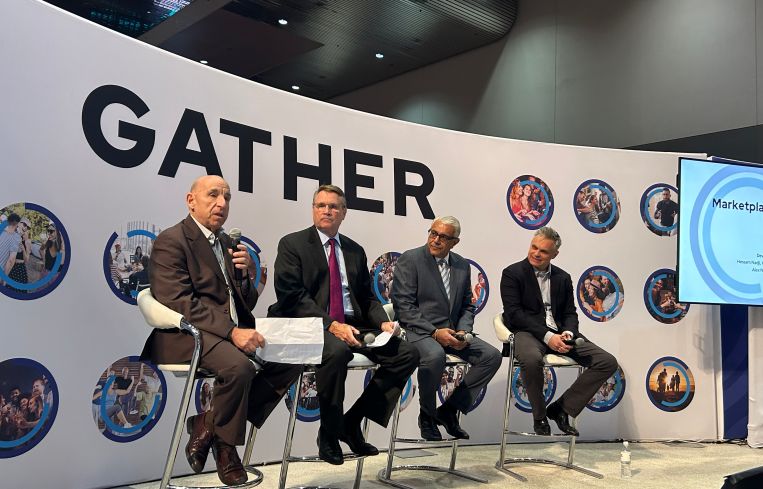ICSC 2023: Retail Investment Sales Press On With Haircuts
By Andrew Coen May 22, 2023 3:46 pm
reprints
Pricing corrections on retail assets are helping drive some properties into the market despite tight credit conditions.
Hessam Nadji, president and CEO of brokerage firm Marcus & Millichap, noted at Monday’s annual ICSC conference in Las Vegas that retail properties on the single-tenant side have dropped roughly 10 to 15 percent, and fallen 15 to 20 percent for multitenant assets.
“If those price reductions are being applied, any product that’s coming to market is getting multiple offers, despite the finance being very tight and despite interest rates being much higher,” Nadji said during Monday’s general session panel “Marketplaces Industry Insights” held at the Las Vegas Convention Center. “People are putting in more equity to get the assets that they believe they should have and they’ll refi later when interest rates come back in probably next year, or the year after.”
Nadji called retail “the new darling of the industry” with the sector weathering increases in cap rates much better than other commercial real estate classes, notably office.
Alex Nyhan, CEO of First Washington Realty, said the composition of buyers in the retail CRE market has narrowed in the rising interest rate environment to largely private property owners who oftentimes lack their own equity compared with the real estate investment trusts and family offices he used to attract. Nyhan said he plans to wait until debt markets stabilize before bringing more retail assets to market.
Nyhan added though that. on the acquisition side, First Washington has managed to receive debt financing for grocery-anchored shopping centers from life companies, which are willing to lend on that aspect of the retail sector. The firm executed $6 billion of investing, selling and debt financing in 2022, according to Nyhan.
Devin Murphy, president of Phillips Edison & Company, said while there has been a decline in investment sales activity, his firm acquired nearly $100 million of properties in the first quarter, including four grocery-anchored retail centers. Murphy noted that market dynamics are driving institutional investors over-allocated on the real estate to sell grocery-anchored assets since they have been less negatively affected by increased cap rates. Individual CRE investors are also being forced into selling in many cases, according to Murphy, because of increased borrowing costs for refinancing.
“They’re now being required to write a check to put more equity into the asset and they may not be willing to do that, and so therefore they’re deciding to pull the trigger and sell the asset,” Murphy said.
Andrew Coen can be reached at acoen@commercialobserver.com



